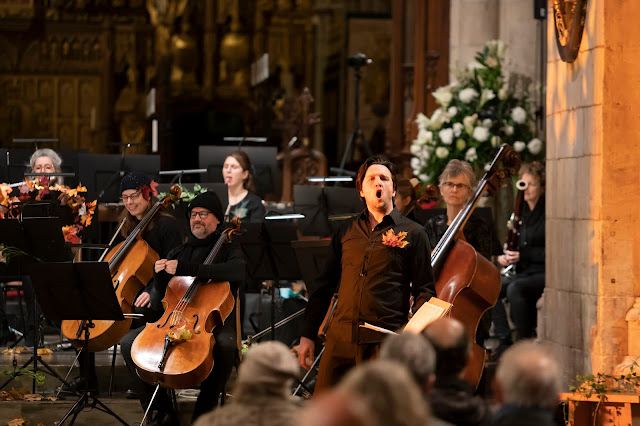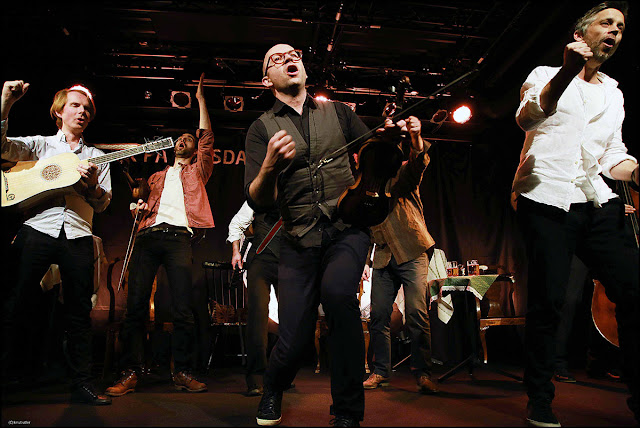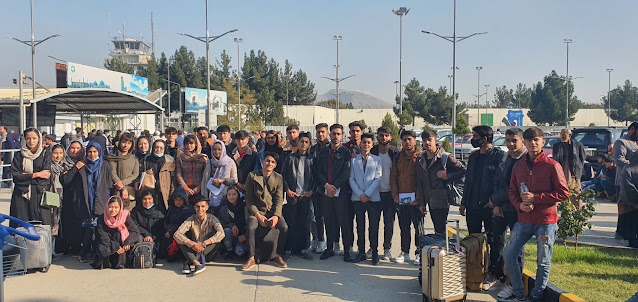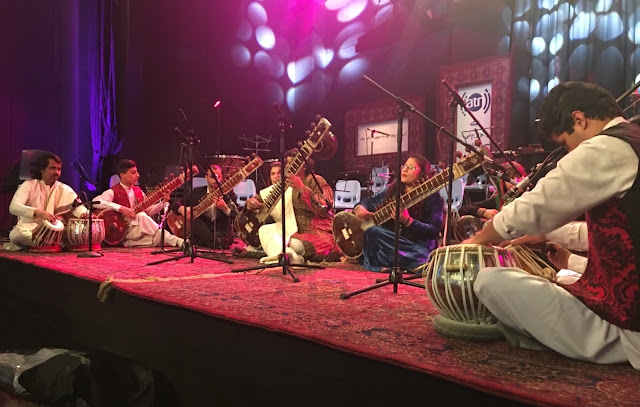 |
| Wagner: Das Rheingold - Deutsche Oper, Berlin (Photo Bernd Uhlig) |
Wagner Der Ring des Nibelungen; Dir: Stefan Herheim, cond: Donald Runnicles; Deutsche Oper Berlin
Reviewed by Tony Cooper on 16 November 2021 Star rating: 5.0 (★★★★)
Tony Cooper experiences Stefan Herheim's new Ring cycle in Berlin
Tony Cooper's review of Stefan Herheim's new production of Wagner's Der Ring des Nibelungen at the Deutsche Oper, Berlin, conducted by Donald Runnicles with Nina Stemme, Clay Hilley, Derek Welton, Iain Paterson, Brandon Jovanovich, Elisabeth Teige.
I’m back in Berlin, a city I favour and enjoy so much, ready for yet another Ring cycle at Deutsche Oper, a large, comfortable 1850-seat theatre boldly designed in the Modernist style and simply ideal for large-scale productions. And none come much larger than those penned by Giacomo Meyerbeer, Richard Strauss and Richard Wagner
From my hotel on Bayreutherstraße just off Wittenbergplatz, Berlin’s most fashionable department store, KaDeWe, stares me straight in the face while a quick three-stop tube journey drops me right at the doorstep of Deutsche Oper situated at the junction of Bismarckstraße and Richard-Wagner-Straße located in the western part of the city in Charlottenburg.
In fact, I was only here in the spring of last year feasting on Meyerbeer’s two great masterpieces Les Huguenots and Le prophète written at the peak of his career in 1836 and 1849 respectively. Interestingly, the finale of Le prophète - culminating in fire, destruction and death - closely mirrors the catastrophic ending of Wagner’s Götterdämmerung.
Therefore, with my mind furiously on fast rewind, I fondly recall seeing the final performance of Götz Friedrich’s monumental (and well-loved) ‘Cold War’ Ring that ‘lived’ on Bismarckstraße for an astonishing amount of time: 33 years, in fact, from 1984 to 2017. A pretty good innings all round!
Now another Ring rises from the smouldering ashes of Valhalla at Deutsche Oper this time directed by multiple-award-winning Norwegian director, Stefan Herheim, who just happens to be a disciple of Götz Friedrich. He studied under him at the Hochschule für Musik und Theater Hamburg from 1994 to 1999. A bit of the Old Master has surely rubbed off on him!
 |
| Wagner: Götterdämmerung - Nine Stemme - Deutsche Oper, Berlin (Photo Bernd Uhlig) |
Götz Friedrich (as did Harry Kupfer) worked as an assistant to the well-respected Austrian-born theatre/opera director, Walter Felsenstein, the iconic boss of East Berlin's Komische Oper in the early post-war years. His philosophy was that opera went beyond singing to encompass music-theatre: the intersections between music, sound and theatrical performance. His productions focused on pure dramatic and musical values which were thoroughly researched and, indeed, finely balanced.
Such a philosophy as this, I feel, defines Stefan Herheim’s direction. He pulls no punches and pays full attention to detail often incorporating ideological and historical references in his work. For instance, his celebrated production of Parsifal at Bayreuth in 2009, which I greatly enjoyed, used Parsifal and the search for the Holy Grail as a metaphor for the development of Germany as a Christian nation.
He sparked controversy, though, when depicting the country under the absolute rule and order of the National Socialists. Strong and chilling stuff, maybe, but it was daring stuff nonetheless that showed his directorial style and prowess causing a few raised eyebrows along the way. However, I admire directors such as Herheim who pushes boundaries and challenges the status quo in opera especially with Wagner.
Therefore, if Friedrich’s Ring focused on the big issue of his day, the threat of nuclear warfare, Herheim follows suit and his Ring focuses on the big issue of today, the refugee crisis, a subject that has been thrust into the limelight lately by the hordes of refugees, mainly from Iraq, Syria and Yemen, gathered together in freezing conditions at the Belarus-Polish border seeking refuge and hoping for a better and more fruitful life within the EU.








































